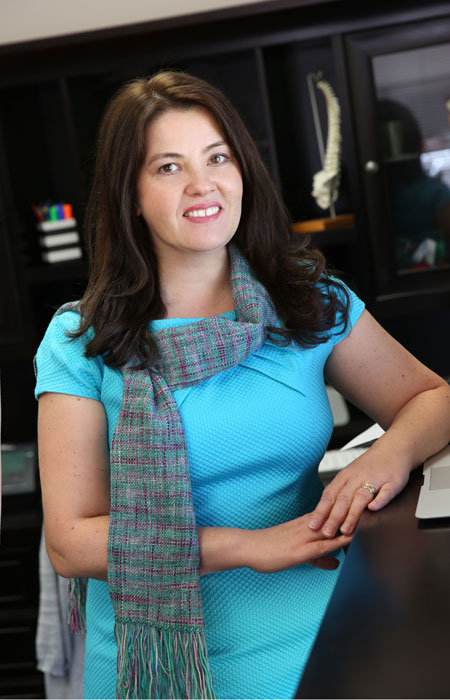Why I do what I do
By Nicoleta Bugnariu, PhD, PT
I was 19 years old and fresh out of nursing school when I emigrated from Romania to Canada and took a job at a residential facility for seniors.
One of the women I cared for was a retired nun named Rita. Months after I started, she suffered a major stroke. She survived but lost feeling and movement on the right side of her body. She could no longer walk, stand, or feed and bathe herself.
As her nurse, I dressed Rita, brushed her teeth and did what she could no longer do for herself. She was essentially dependent on others for everything.
Then she started physical therapy. I was there while she spent the entire next year trying to re-learn how to do things herself.
At that time, back in Romania, physical therapy was not a profession in itself. So I knew nothing about it. I had never thought about it. This was my first exposure.
During that year, I watched Rita regain the ability to stand, walk, move her arm and start to retake control of her life. She fed herself. She brushed her teeth. At the end of that year, Rita was able to crochet a scarf for her physical therapist as a gift.
Before my eyes, Rita regained her independence. Even more, she regained her dignity. I was mesmerized. I knew physical therapy was what I wanted to do.
I went to physical therapy school, and the more I learned about rehabilitation, the more I wanted to know about brain plasticity and how it recovers from an injury; how it changes with disease or because of aging. What could we do as physical therapists to optimize that recovery, and how could we use technology to understand the neural mechanisms that facilitate movement?
To this day, these questions fuel my research interests.
I teach a course at the Health Science Center called Integrated Movement Control. At the beginning of every semester, I tell my new students Rita’s story, and how it impacted me and guided my journey into a physical therapy career. I tell them that through their practice they will have the opportunity to transform people lives.
Last year, at the end of the semester, one of my students, Brenda Kinzler, brought me a gift. It was a scarf that Brenda knitted for me, just like Rita had crocheted one for her physical therapist.
I cried.
***
Dr. Nicoleta Bugnariu is Interim Dean of the School of Health Professions and Associate Professor of Physical Therapy. Her research focuses on the underlying mechanisms controlling sensorimotor function in patients of all ages.







Social media